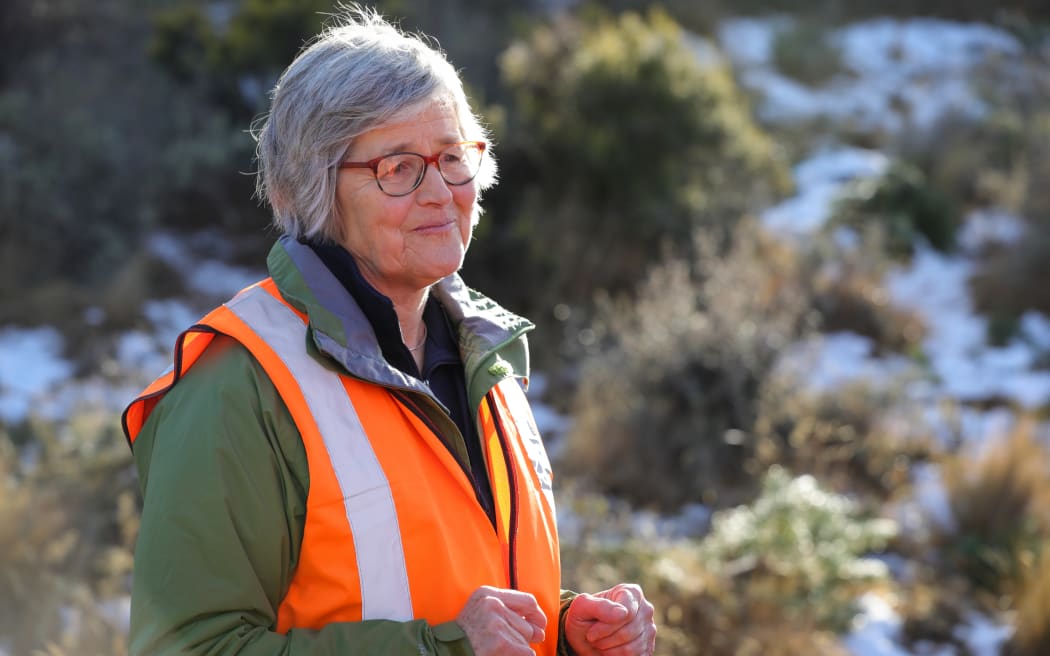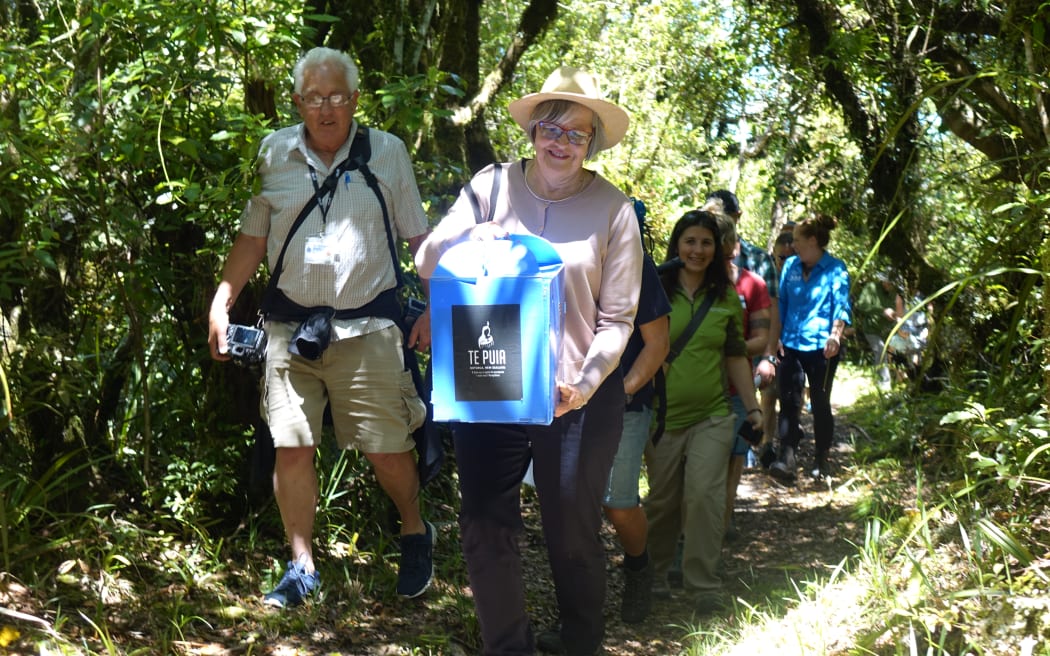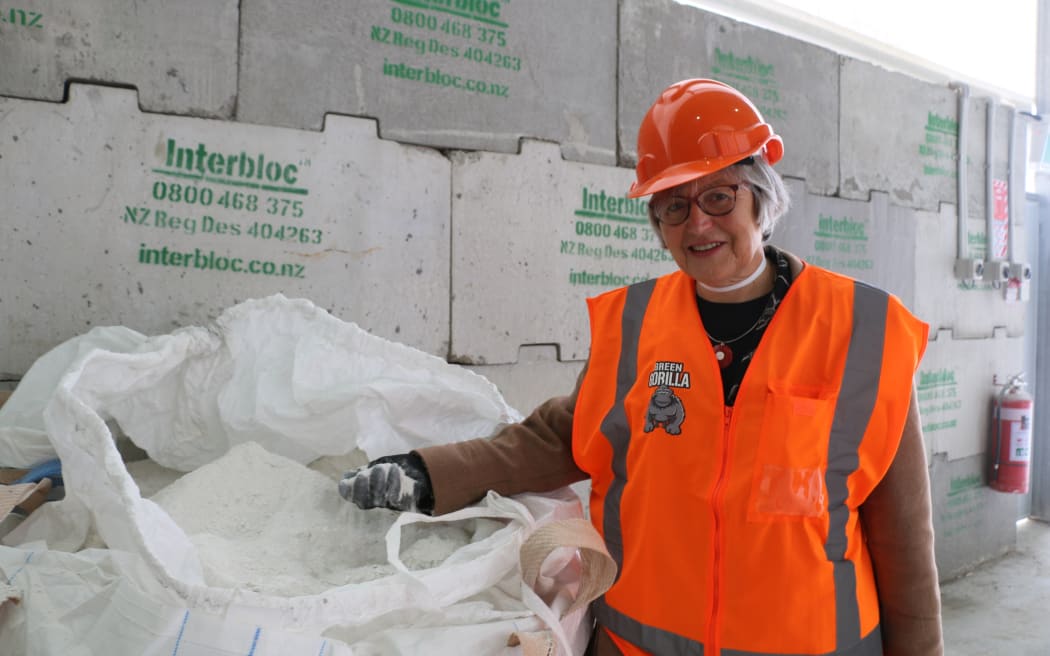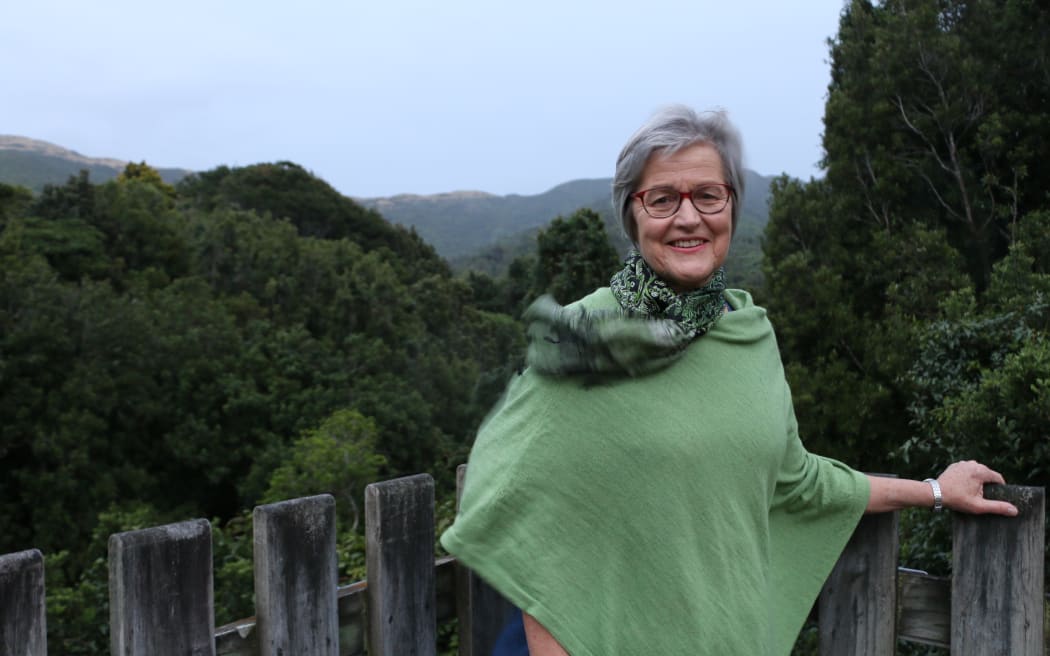Departing Green MP Eugenie Sage reflects on time in Beehive

By Sue Teodoro, Local Democracy Reporting
After 12 years at the heart of New Zealand politics, a Green Party MP who will not be standing for election in October speaks about her time in Parliament.
Outgoing list MP Eugenie Sage visited Wairarapa this week and took time out from her focus on predator control to reflect on her time in the Beehive.
During her time as MP, Sage has served as minister of conservation and was associate minister for the environment from 2017 to 2020.
She is currently chair of the Parliamentary Select Committee for the Environment, a member of the Regulations Review Committee, and the Green Party spokesperson for conservation, the environment and a host of other issues.
"It is four terms, but it has gone in a flash. It does go quickly," she said.

The initial six of the 12 years were spent in opposition, but Sage counted a range of achievements since 2017.
She said getting increased funding for the Department of Conservation as well as the 'Jobs for Nature' programme among the party's biggest successes during her time in Parliament.
Jobs for Nature is a $1.2 billion programme across multiple government agencies aimed at benefiting the environment, people and the regions. It was part of the government's Covid-19 recovery package.

Sage said Wairarapa people involved in local environmental recovery in organisations like Wairarapa Pukaha to Kawakawa [WaiP2K] and predator-free activity across the region had also benefited from the funding.
"The difference that Jobs for Nature has made in terms of providing funding to enable people who may not have been that connected with nature to learn practical skills - trapping, weed control, and riparian planting - to connect with nature, and give nature a helping hand," she said.
Sage said it had helped set people up to get a full-time job in that area because of the experience and skills they had learnt.
She counted the biggest addition to a national park - Kahurangi, in the South Island, changes to conservation legislation to benefit indigenous freshwater fish, passing the Crown Pastoral Lands Act, and the ban on single-use plastic bags among other notable party achievements during her Parliamentary political career.
She cautioned New Zealand still had significant work to do in the environmental space.
"In waste, we are way behind the rest of the world," she said.

"The landfill levy is our only environmental tax, and all the money gets recycled into waste minimisation.
"We have a clean, green, 100 percent pure reputation which the tourism industry has used to market Aotearoa. But there is a complacency among New Zealanders, and we do not live up to that reputation in so many ways," Sage said, citing water pollution as one example.
"Because we are a biodiversity hotspot, with a lot of species only found here in Aotearoa, and because of our huge history of habitat destruction, in the brief 750-800 years humans have been in Aotearoa, and the introduction of mammalian predators, we have got a lot of work to do."
Sage said there was a nature crisis in New Zealand, as well as a climate crisis.
"So we have a long way to go. But things like predator-free and all the work and capacity Celia has in this space is one of the really inspiring things about the change in people's relationship with nature, and people's preparedness to give nature a helping hand," she said, referring to Wairarapa Green Party candidate Celia Wade-Brown.
![Eugenie Sage [L] and Celia Wade-Brown at Fetherston Station. PHOTO/SUE TEODORO - Single use LDR image](https://rnz-ressh.cloudinary.com/image/upload/s--Chbtkg15--/ar_16:10,c_fill,f_auto,g_auto,q_auto,w_1050/v1689134720/4L5Z8N8_RS498427_IMG_4032_scaled_jpeg)
Wade-Brown, a former mayor of Wellington, is currently involved in the region's predator-free initiative, as well as managing her own large block of land back into its original natural state.
Sage and Wade-Brown agreed the predator-free effort had united a range of people from all walks of life across both Wairarapa and more broadly.
"There are a lot of individuals, farmers, and owners of lifestyle blocks, that are increasingly protecting wildlife, and are interested in wildlife," Wade-Brown said, adding that communities had united at a local level to address the issue.
Sage said after leaving Parliament, she expected to spend more time with family, as well as on conservation or waste-focused work - and doing some long-postponed walking trips.
"There's a whole series of great walks I haven't had a great deal of time to do over the last 12 years," she said.
Sage laughed, as she remembered opening the Paparoa Track in the South Island.
"I opened it but didn't get time to actually walk it. So yes, that is on the list."

Local Democracy Reporting is Public Interest Journalism funded through NZ On Air